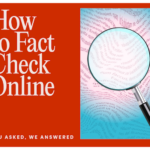Tessa Commers, MD, FAAP
Head of Medical Education for Julie
-
You Asked We Answered

We’re back with more coverage for Women’s Health Week. JIC you didn’t know: Like abortions, the morning after pill isn’t just for women—but for anyone with a uterus who might get pregnant and doesn’t want to be. But we know you prob have lots of questions about emergency contraception, so we got an expert to give us the 411.
Without further ado, let us introduce Tessa Commers, MD, FAAP (she/her) aka the head of medical education for Julie, a company promoting access, confidence, and empowerment in the sexual health space. They sell an OTC morning-after pill and donate a box for every box purchased.
Tessa says her role at Julie is “primarily around our mission of empowerment.” She works with teams on high-quality, evidence-based sex ed on YouTube and their website. “I also provide medical education around our product, the morning-after pill, for our internal team and on an as-needed basis for our content and customer service teams,” she explains… which is why she’s here today. Take it away, Tessa!
What is emergency contraception? When should it be taken?
Emergency contraception describes a category of contraceptives that are used after unprotected penetrative vaginal sex to prevent pregnancy from starting. Emergency contraception includes the morning-after pill and some forms of IUDs (intrauterine devices). Timing is a very important factor in determining how effective emergency contraception can be. The general rule is that the sooner it’s used after unprotected sex, the better it will be at reducing the risk of pregnancy. The morning-after pill, like Julie, should be taken within 72 hours after unprotected sex.
Does emergency contraception have any drug interactions?
Different types of emergency contraception have different side effects, and if you’re on any regular medications it’s important to know which option is right for you. The morning-after pill has few drug interactions, which include some HIV medications, some seizure medications, rifampin, and St. John’s Wort. If you have specific concerns, it’s best to check with your doctor or a pharmacist. If you find that you’re on a medication that interacts with the morning-after pill, it’s possible that a different form of emergency contraception, like the copper IUD, may be best for you. IUDs tend to have minimal drug interactions.
Can we take the morning after pill if we’re already on hormonal birth control?
It’s safe to take the morning-after pill if you’re already on hormonal birth control, but it’s unlikely to be necessary. If you’re using your regular birth control as directed there should be no reason to take the morning-after pill. Regular birth control is actually more effective than the morning-after pill because it delivers a more dependable and consistent stream of hormones. The main reason to use the morning-after pill when you’re on another form of birth control is if you’ve not been using the birth control as directed (like you skipped a dose or 2 of your pills or you’re late for a Depo shot).
Can you take emergency contraception if you’ve been drinking or if you’re on antibiotics?
Yes and yes! The only antibiotic that may reduce the efficacy of the morning-after pill is rifampin, which is mainly used to treat tuberculosis.
Does it work differently on people in larger bodies?
Yes, it does, and we’re not totally sure why. What we do know is that increasing the dose has no impact as BMI increases. The morning-after pill is most effective for those with BMI under 25. For those with a BMI between 25 and 29.9, pregnancy risk increases slightly from 1.7% to 2.5%. For those with a BMI over 30, pregnancy risk increases to 5.8%. It’s important to note that this is still below the risk without using any form of contraception, which is over 10%.
The reality is that there aren’t wonderful FDA-approved over-the-counter options for individuals with higher BMIs, though more effective forms are available through a medical provider. There is another pill, Ella, that is available with a prescription and is quite effective for BMIs up to 30. The best form of emergency contraception, the IUD, is actually the best option for any BMI and is incredibly effective. The hurdle is that it requires a visit with a medical provider for insertion within 5 days of unprotected sex.
At Julie, we have kept the issue of body equality at the forefront of our conversations, and we strive to be a part of the solution. We’re starting with transparent, honest education around our product, but we will continue to advocate for and encourage change to make emergency contraception equal for all.
Is there any danger in taking the morning after pill more than once?
There is no danger, but there are 2 main things to consider. The first is side effects. Every time you take a dose, you’re delivering a large amount of a hormone to your system. This has temporary side effects, including period cycle changes. The more doses you take, the more your period cycle will be disrupted. This doesn’t cause long-term problems but makes it more difficult to determine when your period and ovulation will occur. The second impact of taking multiple doses is efficacy. It’s just not as effective as regular birth control. If you find you’re in a situation where you’re taking many morning-after pill doses, it might be time to consider a trip to a medical provider to discuss better options for pregnancy protection.
Does emergency contraception ever expire?
All medications have an expiration date, and Julie’s morning-after pill has a shelf life of between 2 and 3 years. There is no harm in stocking up ahead of time (or having an extra to share with a partner). Just make sure to check the expiration date before taking it.
Is there anything else you’d like to share?
In light of recent events, we’ve fielded many questions around the difference between emergency contraception and abortion. We understand the responsibility of being in this space during such a monumental time in sexual and reproductive health, and we’re proud to offer support and education around our product, the female body, and sexuality. We hope to continue to be a reliable and dependable resource during difficult times.



